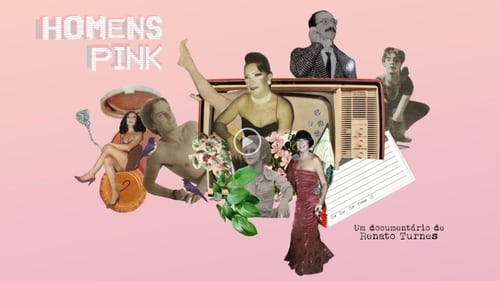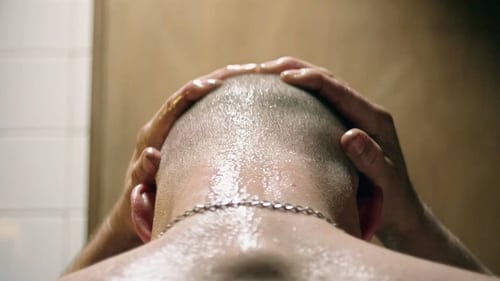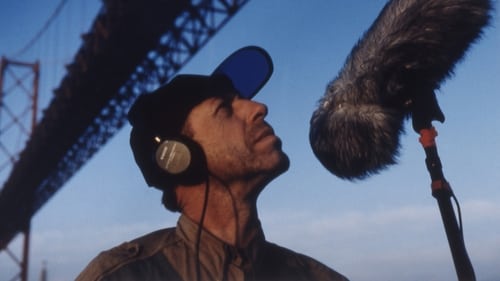Marco Martins
출생 : , Lisbon, Portugal
약력
Marco Martins (born 1972 in Lisbon, Portugal) is a Portuguese film director, best known for his 2005 film Alice, which premiered at Cannes and won the Best Picture Award at the Directors' Fortnight.
In 1994 Marco Martins graduated from Lisbon Theatre and Film School (Escola Superior de Teatro e Cinema), and soon afterwards undertook an apprenticeship with Wim Wenders, Manoel de Oliveira and Bertrand Tavernier. For two years following, he worked as assistant director to João Canijo, a fellow Portuguese director.
During this period, his short films "Mergulho no Ano Novo" and 'No Caminho Para a Escola received critical acclaim, the former winning Best Short Film Award at the International Short Films Festival of Vila do Conde, and the latter taking Best Short Film and Best Director Awards at the VII Festival Ibérico de Cinema de Badajoz as well as the Eixo Atlântico Award at the Festival de Ourense
He began shooting advertisements in the late 90's and in 2002 started his own production company, "Ministério dos Filmes", which has received multiple international awards.
In 2005, his first feature film, Alice, premiered at the Cannes Film Festival, and received a number of international awards and made the long list for the Academy Awards Foreign Language Film prize.
His 2006 short film was a contender at the "Corto Cortissimo" competition on the 63rd Venice International Film Festival, an international competition of 35mm short films.
In 2009, he produced his second film, How to Draw a Perfect Circle, and in 2016 directed São Jorge.
Description above from the Wikipedia article Marco Martins, licensed under CC-BY-SA, full list of contributors on Wikipedia.

Screenplay
October 2019, Great Yarmouth, Norfolk (UK). Three months before Brexit. Hundreds of Portuguese migrant workers pour into town, seeking work at the local turkey factories. Tânia (The Mother of the Portuguese), a former worker in these poultry plants, is now married to an English hotel owner. She is the perfect facilitator for the Portuguese workers, but dreams of becoming a British citizen and leaving this dirty business behind by transforming her husband’s derelict hotels into refurbished senior citizens homes.

Director
October 2019, Great Yarmouth, Norfolk (UK). Three months before Brexit. Hundreds of Portuguese migrant workers pour into town, seeking work at the local turkey factories. Tânia (The Mother of the Portuguese), a former worker in these poultry plants, is now married to an English hotel owner. She is the perfect facilitator for the Portuguese workers, but dreams of becoming a British citizen and leaving this dirty business behind by transforming her husband’s derelict hotels into refurbished senior citizens homes.

Director
UM CORPO DE DANÇA is a proposal for the history of the body, showed through the path of the biggest Portuguese dance company of the 20th century. The documentary follows the rise of dance in Portugal along with the country’s political, economic and sociocultural ongoings as background. It is the story of a transforming body that frees itself from a fascist dictatorship, and of a changing society that opens itself to the world. From unreleased archive images and interviews with several creators and dancers, we follow the path of an extraordinary dance company through the movements and words of its protagonists, from creation in the early 1960s to its extinction in 2005.

Writer
UM CORPO DE DANÇA is a proposal for the history of the body, showed through the path of the biggest Portuguese dance company of the 20th century. The documentary follows the rise of dance in Portugal along with the country’s political, economic and sociocultural ongoings as background. It is the story of a transforming body that frees itself from a fascist dictatorship, and of a changing society that opens itself to the world. From unreleased archive images and interviews with several creators and dancers, we follow the path of an extraordinary dance company through the movements and words of its protagonists, from creation in the early 1960s to its extinction in 2005.

Sound Editor
The meetings between Renato Turnes and nine gay gentlemen who share their memories with him. The first desires, the awakening of sexuality, the boiling of gay youth in a country under the military dictatorship, the devastation of the AIDS epidemic, the confrontation of losses and stigma, the party as a territory of resistance. Reflections on the passage of time and the aging of gay men in Brazil

Editor
The meetings between Renato Turnes and nine gay gentlemen who share their memories with him. The first desires, the awakening of sexuality, the boiling of gay youth in a country under the military dictatorship, the devastation of the AIDS epidemic, the confrontation of losses and stigma, the party as a territory of resistance. Reflections on the passage of time and the aging of gay men in Brazil

Director of Photography
The meetings between Renato Turnes and nine gay gentlemen who share their memories with him. The first desires, the awakening of sexuality, the boiling of gay youth in a country under the military dictatorship, the devastation of the AIDS epidemic, the confrontation of losses and stigma, the party as a territory of resistance. Reflections on the passage of time and the aging of gay men in Brazil

Sound Editor

Editor

Director of Photography

Director

Associate Producer

Camera Department Production Assistant

Camera Operator

Director

Screenplay
In 2011 Portugal began the so-called "year of the Troika" (EU, IMF and ECB budget cuts and economic restructuring), with the level of debt among the Portuguese people reaching staggering amounts and a growing number of families and companies unable to repay their installment loans. Jorge is an unemployed boxer on the verge of losing his son and his wife, who has decided to return to Brazil. As a means of paying off his debt and persuading his wife to remain in Portugal, Jorge accepts a job with a debt-collection agency, which will drag him into a world of violence and crime.

Director
In 2011 Portugal began the so-called "year of the Troika" (EU, IMF and ECB budget cuts and economic restructuring), with the level of debt among the Portuguese people reaching staggering amounts and a growing number of families and companies unable to repay their installment loans. Jorge is an unemployed boxer on the verge of losing his son and his wife, who has decided to return to Brazil. As a means of paying off his debt and persuading his wife to remain in Portugal, Jorge accepts a job with a debt-collection agency, which will drag him into a world of violence and crime.

Director
The film portrays the life and work of the composer and samba gaucho Túlio Piva. A native of Santiago do Boqueirão, Túlio consolidated his musical career in Porto Alegre. Owner of a very own beat on the guitar, lived more than 50 years of samba, owned the bar "Gente da Noite", where he composed much of his work and recorded four LPs.

Director

Script
After having suffered a serious car accident in which his 6 month pregnant wife is killed, X, a 35 year old man, is admitted in an intensive care unit. K, a 30 year old nurse, will help X during his rehabilitation. K is also 6 months pregnant. This curious detail makes their apparent impersonal relationship stronger.

Director
Photography is diary... diary is life... in the end, the world and photography always end up alone, with each other.

Producer
The film INSERT was conceived has part of MEMOGRAMA by Filipa César, an installation that approaches the history of Castro Marim, a village in the southeast of Portugal, known for salt production and as a location for banishment and forced labour. The translation of sin into salt. The film INSERT creates staged images on the landscape of this place and offers a set for the announcement of a forbidden encounter.

Director of Photography
The film INSERT was conceived has part of MEMOGRAMA by Filipa César, an installation that approaches the history of Castro Marim, a village in the southeast of Portugal, known for salt production and as a location for banishment and forced labour. The translation of sin into salt. The film INSERT creates staged images on the landscape of this place and offers a set for the announcement of a forbidden encounter.

Director
The film INSERT was conceived has part of MEMOGRAMA by Filipa César, an installation that approaches the history of Castro Marim, a village in the southeast of Portugal, known for salt production and as a location for banishment and forced labour. The translation of sin into salt. The film INSERT creates staged images on the landscape of this place and offers a set for the announcement of a forbidden encounter.

Writer
Guilherme and Sofia, brother and sister, grow up sharing experiences and slowly discovering their sexuality. The thing that Sofia doesn't know is how far Guilherme will go to keep her inside his own perverse, dark and perfect circle.

Director
Guilherme and Sofia, brother and sister, grow up sharing experiences and slowly discovering their sexuality. The thing that Sofia doesn't know is how far Guilherme will go to keep her inside his own perverse, dark and perfect circle.

Writer
In the wake of his daughter's disappearance, a father wallowing in grief feeds his desire to find her with unusual methods.

Director
In the wake of his daughter's disappearance, a father wallowing in grief feeds his desire to find her with unusual methods.

Production Assistant
음향 기사인 필립은, 리스본에서 독립영화 제작 중 예술가로서의 막다른 골목에 처한 동료 프리드릭의 의 도와달라는 요청에...그는 포르투갈을 향해 중고차를 몰고 친구의 구조 여정을 떠난다. 힘든 여정 끝에 도착한 프리드릭의 아파트에 본인은 잠적하여 없고, 필립이 접하게되는 것은, 프리드릭이 찍다만 흑백 무성영화, 읽다만 책, 그가 사귄 동네 아이들, 배경음악을 담당할 지방 음악인들이다. 이들을 단서로 프리드릭의 이미지에 맞는 음향 편집을 위해, 필립은 도시를 돌아다니며 소리 채집을 시작한다. 이 영화의 마지막 20분을 남겨 놓고 필립이 드디어 만나게 된 프리드릭은, 컴퓨터 시대의 오염된 쓰레기 이미지를 한탄한다. 그는, 영화사의 재출발을 위해 자신이 시도했던, 원천적 "카메라를 든 사나이"로의 재귀마저도 충분치 않았다며, 순수한 이미지 포착를 위해선, 시각의 주체를 완전히 배제한 촬영 방식 (등에 카메라를 맨 방식)을 시도해야 한다고 선언한다. 이미지 집착이 아닌, 영화 매체의 포괄적인 성격에 이미 익숙해온 필립은, 컴퓨터 시대의 원천적 '녹음기를 든 사나이'로 좀 더 여유가 있다. 그는, 프리드릭에게 남긴 녹음 메세지를 통해, 쓰레기 이미지를 탓하기 보다, 마음의 소리에 귀를 기울이라고 충고한다.



